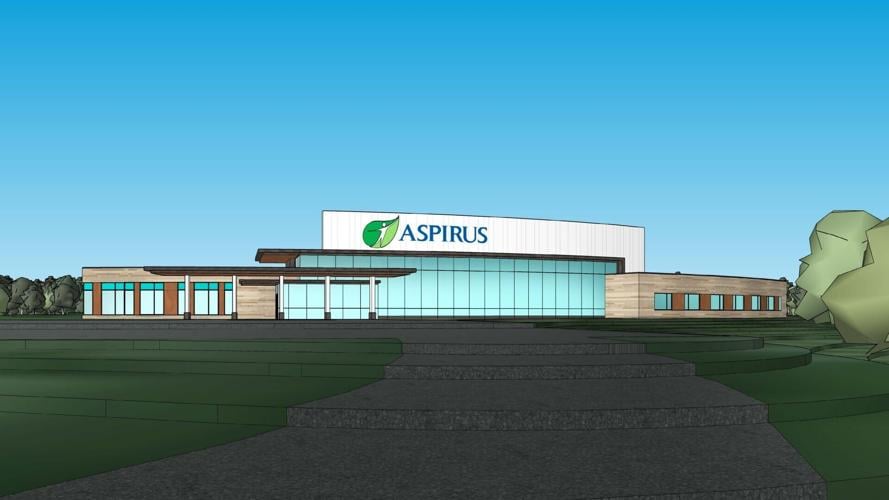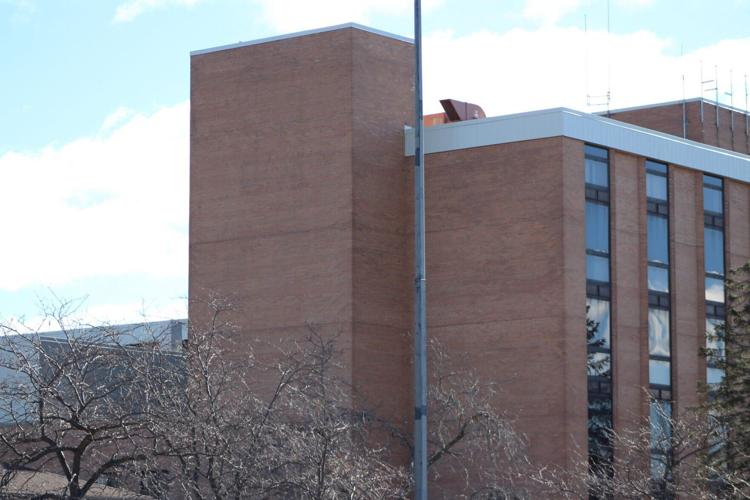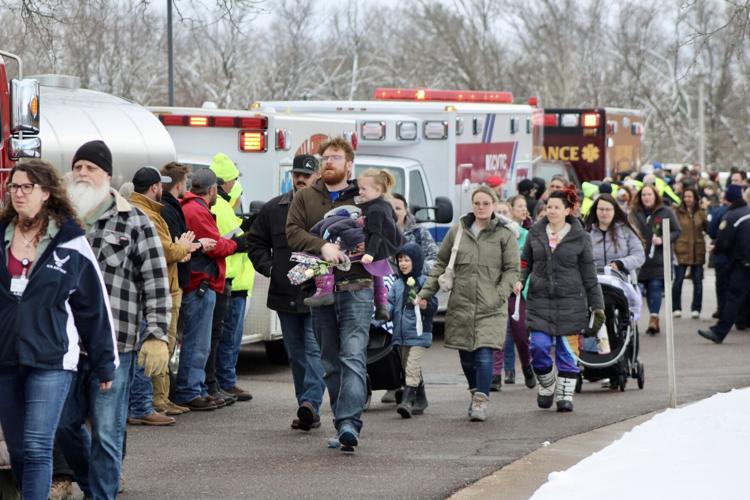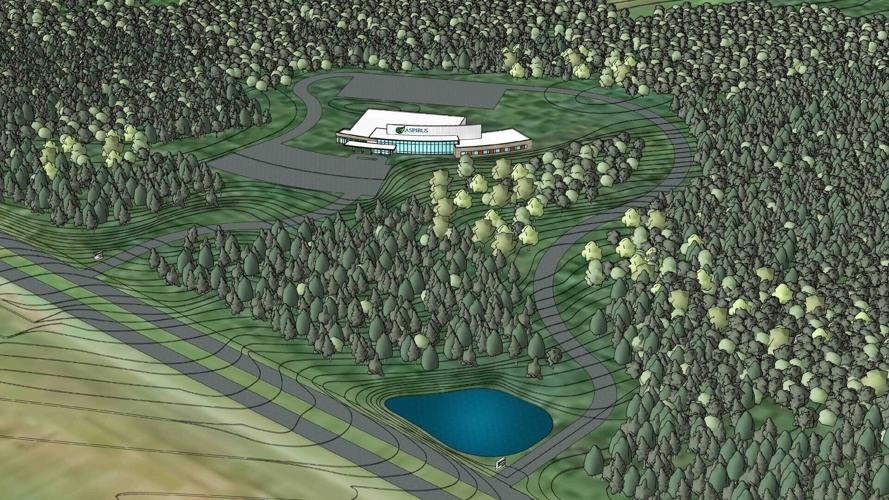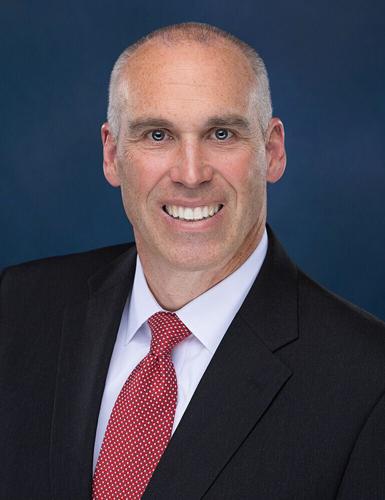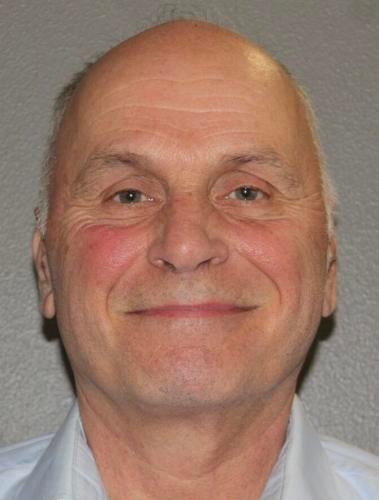A Wisconsin-based health care provider plans to build a new hospital in Chippewa Falls.
Aspirus Health is collaborating with local officials to advance plans for the construction of a new hospital that will help meet local health care needs, according to a Thursday press release from Aspirus Health.

Aspirus Health rendering for new Chippewa Falls facility.
“Since the March 2024 closure of HSHS hospitals in the Chippewa Valley, there has been an unmet need for emergency and inpatient hospital services,” said Matt Heywood, Aspirus Health President and Chief Executive Officer.
Partnering with Wisconsin-based civil engineering firm REI and architectural firm HGA, Aspirus has completed preliminary plans for a new hospital and clinic that could be open to the public in as little as 18 months, pending necessary approvals, Heywood said.
The Wausau-based health care group is working to secure a site with convenient access to Highway 29, as well as capacity for future growth and service expansion.
People are also reading…

Aspirus Health rendering for new Chippewa Falls hospital.
Patients in the Chippewa Valley have felt strain as the future of hospital-based health services in Chippewa Falls and Eau Claire have been in limbo since the January announcement that HSHS St. Joseph’s, HSHS Sacred Heart and multiple Prevea Health locations across western Wisconsin would close.
The two HSHS hospitals closed March 22.
“To help fill that gap, Aspirus expanded services and access in Stanley and Medford, which are located to the east of Chippewa Falls,” Heywood said. “After months of investigation and productive conversations with local officials, we have created a plan to build a facility where residents could access emergency care, inpatient hospital services and primary care.”
Another hospital project has been a topic of much discussion this year.
The Chippewa Valley Health Cooperative community hospital plans, which could result in a new hospital in either Chippewa or Eau Claire counties, are ongoing, the group says in a Thursday statement.
Patients in the Chippewa Valley have felt strain as the future of hospital-based health services in Chippewa Falls and Eau Claire have been in limbo since the January announcement that HSHS St. Joseph’s, HSHS Sacred Heart and multiple Prevea Health locations across western Wisconsin would close.

Hospital staff participate in the honor walk in front of HSHS St. Joseph’s in Chippewa Falls on March 22 immediately after the facility closed its doors for good.
The two HSHS hospitals closed March 22.
“To help fill that gap, Aspirus expanded services and access in Stanley and Medford, which are located to the east of Chippewa Falls,” Heywood said. “After months of investigation and productive conversations with local officials, we have created a plan to build a facility where residents could access emergency care, inpatient hospital services and primary care.”

Matheson
Aspirus Health
Based in Wausau, Aspirus has experience providing health care in cities like Chippewa Falls, the release says.
With 14,000 employees, Aspirus operates 18 hospitals and more than 130 outpatient locations across northern and central Wisconsin, as well as northeastern Minnesota and the Upper Peninsula of Michigan.
“Communities throughout our region have made clear just how much they value local access to emergency and hospital care,” said Jim Matheson, Aspirus Health Senior Vice President and Chief Strategy Officer.

Heywood
By partnering with communities to match services to evolving local needs, Aspirus has thrived in the challenging health care environment.
“In our rapidly changing world, we understand that we must advance new care models,” Heywood said. “Through thoughtful planning and collaboration, we look forward to meeting current local care needs and growing with the community for generations to come.”
Chippewa Valley Health Cooperative
As Aspirus Health announced its plans to build a new hospital, another group, the Chippewa Valley Health Cooperative, has been planning to build a community hospital in the region since the spring.
The Chippewa Valley Health Cooperative is moving forward with its plans to offer a locally governed, independent community hospital.
“The Chippewa Valley has been at the mercy of out-of-town hospital systems for decades, and our community has had little voice in what services and facilities exist here to care for our residents,” said Robert Krause, Board Chair of the Chippewa Valley Health Cooperative on Thursday.

Krause
The hospital will offer “a broad range of services that we know the community needs to thrive,” a statement from the Chippewa Valley Health Cooperative on Thursday says.
“We believe local control is key to the stability and sustainability of any new hospital in our region, and the Chippewa Valley Health Cooperative’s plan provides the best solution to this health care crisis,” stated Dr. Kyle Dettbarn, Chair OakLeaf Medical Network.
The cooperative aims to provide “local access to cost-effective local care, locally governed so all decisions are made here for here.”
“The physicians and clinics of the OakLeaf Medical Network, the largest network of independent physicians in Western Wisconsin, which serves over 50,000 primary care patients throughout the greater Chippewa Valley, have committed to caring for their patients at the Chippewa Valley Health Cooperative’s new hospital,” Dettbarn said.

The former HSHS St. Joseph’s Hospital sits empty and signless in Chippewa Falls on Nov. 11.
On Oct. 11, a representative from the Chippewa Valley Health Cooperative said the group aimed to complete its feasibility study on a new hospital this month.
The cooperative commissioned a third-party feasibility study for the new community hospital to help design and plan for a sustainable, independent hospital to meet the needs of western Wisconsin.
The Chippewa Valley Health Cooperative was founded Feb. 29 as an independently governed, locally rooted organization with the goal of making high-quality health care accessible and affordable in the Chippewa Valley. It came together in the wake of multiple health care facility closures across the Chippewa Valley.
Tensions have been high in the Chippewa Valley as the cooperative seeks a location for the new hospital.
The cooperative shared in October that four out of five locations in the running for the new hospital were in Chippewa County. It could take up to three years before the new facility opens its doors and the community hospital project is expected to cost up to $200 million.











